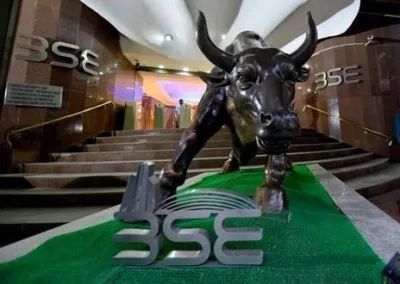Why is BOK Keeping Key Rate Steady for the Fourth Time?

Synopsis
Key Takeaways
- BOK maintains interest rate at 2.5%
- Focus on financial stability amid currency concerns
- Economic growth forecast increased to 1%
- Exchange rate stability discussions initiated
- Ongoing recovery in consumption and exports
Seoul, Nov 27 (NationPress) The Bank of Korea (BOK) decided to maintain its benchmark interest rate at 2.5 percent during its latest meeting, prioritizing financial stability amidst a declining local currency and a precarious housing sector.
This marks the fourth consecutive meeting where the rate has remained unchanged, despite the BOK being in an easing cycle. Since October of the previous year, the BOK has reduced the key rate by a total of 100 basis points from 3.5 percent, aiming to bolster economic growth.
Experts in the region believe that the BOK can afford to adopt a cautious approach while monitoring conditions before implementing further rate cuts, as the economy shows signs of recovery.
In a positive update, the BOK increased its economic growth forecast for this year by 0.1 percentage points to 1 percent and raised the estimate for the upcoming year to 1.8 percent from a previous 1.6 percent.
According to the BOK's statement: "With inflation increasing slightly, the economy is still improving, supported by consumption and exports. However, uncertainties in the growth outlook and financial stability risks persist. Therefore, the Board deemed it appropriate to keep the base rate steady while evaluating domestic and external policy conditions."
The sharp depreciation of the won has raised concerns among policymakers, as a rate cut could lead to capital outflows, further weakening the currency.
Recently, the won has traded significantly below the critical level of 1,450 won per dollar, largely due to significant equity sell-offs by foreign investors amid valuation worries, along with increased U.S. stock investments from local investors.
On Monday, the won closed at 1,477.1 against the U.S. dollar, marking its lowest value since April 9, when it was at 1,484.1 won. This April figure was the weakest since March 12, 2009, when it reached 1,496.5 won per dollar during the global financial crisis.
In response, the finance ministry, BOK, the National Pension Service (NPS), and the welfare ministry overseeing the pension fund have established a four-way consultation body, conducting their first meeting on Monday to explore ways to harmonize the NPS' investment returns with stability in the foreign exchange market.









